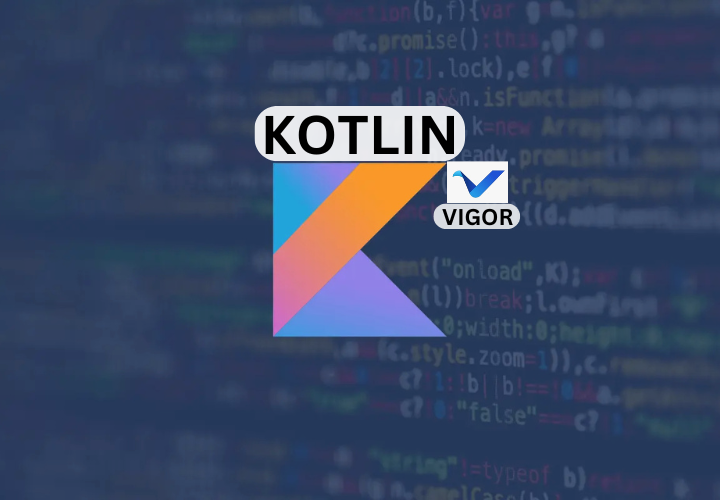KOTLIN APP DEVELOPMENT COURSE
in Mobile Development
Created by
Vinay Mishra
About this course
Kotlin App Development Apprentice Course Syllabus
Module 1: Introduction to Kotlin and Android Development
- Objective: To introduce students to Kotlin and set up the Android development environment.
- Topics:
- Introduction to Kotlin: Why Kotlin is used for Android development.
- Setting up the Android Studio IDE.
- Introduction to Android app architecture and components (Activities, Fragments, Services).
- Building your first Android app: "Hello World" app in Kotlin.
- Understanding Android project structure and files.
- Overview of Android Emulator and testing on real devices.
Module 2: Basics of Kotlin Programming
- Objective: To cover the core syntax and features of Kotlin needed for Android development.
- Topics:
- Variables, constants, and data types in Kotlin.
- Functions and lambdas in Kotlin.
- Control structures (if-else, loops, when).
- Collections in Kotlin: Lists, Sets, Maps.
- Null Safety in Kotlin: Safe calls, null checks, and the Elvis operator.
- Object-Oriented Programming in Kotlin: Classes, objects, inheritance, and interfaces.
- Extension functions and data classes.
Module 3: User Interface (UI) Design
- Objective: To learn how to design interactive and responsive UIs for Android applications.
- Topics:
- Introduction to Android Views: TextViews, Buttons, EditTexts, ImageViews.
- Working with Layouts: LinearLayout, RelativeLayout, ConstraintLayout.
- Understanding RecyclerView and CardView for dynamic lists.
- Implementing Fragments for modular UIs.
- Handling user input: EditText, Buttons, Checkboxes, Radio Buttons.
- Styling with Themes, Styles, and Drawable Resources.
- Introduction to Material Design Components (e.g., Snackbar, Floating Action Button).
- Working with ConstraintLayout for responsive designs.
Module 4: Activities, Intents, and Navigation
- Objective: To master navigation between screens and handling user interactions.
- Topics:
- Understanding Activities and Intents.
- Passing data between Activities using Intents (bundle, Parcelable).
- Introduction to Navigation Components for modern navigation.
- Using Fragments and Fragment Transactions.
- Understanding ViewModels and LiveData for managing UI-related data.
- Deep Linking and navigating to specific parts of an app.
- Introduction to Navigation Drawer and Tabs.
Module 5: Data Storage and Persistence
- Objective: To handle local data storage and management in Android apps.
- Topics:
- Introduction to SharedPreferences for simple key-value data storage.
- Using SQLite for local databases.
- Introduction to Room Database for managing structured data.
- Working with File Storage for saving files locally.
- Understanding and implementing Content Providers.
- Storing data in the Cloud with Firebase Realtime Database.
Module 6: Networking and APIs
- Objective: To interact with remote data and make API calls.
- Topics:
- Introduction to Retrofit for making API calls.
- Parsing JSON data using Gson.
- Handling network requests with OkHttp.
- Working with Volley for network operations.
- Displaying remote data in RecyclerView.
- Managing asynchronous tasks using Coroutines.
- Handling Error Responses and exceptions.
Module 7: Background Tasks and Services
- Objective: To learn how to run background tasks and handle notifications.
- Topics:
- Introduction to Services in Android.
- Understanding Broadcast Receivers and background processing.
- Working with WorkManager for background tasks.
- Implementing Push Notifications using Firebase Cloud Messaging (FCM).
- Scheduling tasks with AlarmManager and JobScheduler.
- Understanding AsyncTask and Coroutines for background threads.
Module 8: Debugging, Testing, and App Performance
- Objective: To ensure apps run efficiently and without bugs.
- Topics:
- Debugging with Android Studio: Breakpoints, logs, and the debugger.
- Writing unit tests with JUnit.
- UI testing using Espresso.
- Introduction to Mockito for mock testing.
- Profiling and optimizing apps for performance (memory leaks, battery usage, CPU).
- Using Android Profiler to measure app performance.
- Best practices for efficient app performance.
Module 9: Publishing Your App
- Objective: To prepare for app deployment and launch.
- Topics:
- Preparing the app for release: Minify, proguard, and optimize.
- Signing the APK and creating a release build.
- App Store guidelines and the process of submitting to the Google Play Store.
- Managing app updates and versioning.
- Handling app crashes and using Crashlytics for reporting.
- Understanding Google Play Services for app analytics and monetization.
Course Delivery Plan
1. Duration
- Recommended Duration: 3-4 months (flexible depending on the learner's pace)
- Mode: Live online classes, recorded lessons, hands-on coding, and project work.
- Frequency: 3 sessions per week, 1.5 to 2 hours per session.
2. Weekly Breakdown
- Weeks 1-4:
- Module 1: Introduction to Kotlin and Android Development
- Module 2: Basics of Kotlin Programming
- Weeks 5-8:
- Module 3: User Interface (UI) Design
- Module 4: Activities, Intents, and Navigation
- Weeks 9-12:
- Module 5: Data Storage and Persistence
- Module 6: Networking and APIs
- Weeks 13-16:
- Module 7: Background Tasks and Services
- Module 8: Debugging, Testing, and App Performance
- Module 9: Publishing Your App
3. Key Features
- Live Coding Sessions: Instructors demonstrate code implementation in real time, followed by student coding exercises.
- Hands-On Projects: Students will work on mini-projects and a final project that includes all major concepts covered in the course.
- Assignments: Weekly assignments to test knowledge and reinforce learning.
- Live Q&A Sessions: Regular sessions for answering queries and solving doubts.
- Peer Review: Students review each other’s code to encourage collaborative learning.
- Project-Based Learning: Each student will build a functional Android app by the end of the course.
4. Resources
- Course Material: Slide decks, code examples, and reading materials.
- GitHub Repository: A shared repository for storing and sharing code examples and assignments.
- Mobile App: An app to track progress, review course material, and get updates.
- Discussion Forums: A community space for students to share ideas, ask questions, and collaborate.
5. Performance Tracking
- Weekly Quizzes: Short quizzes to assess knowledge retention and progress.
- Assignments and Code Reviews: Students submit assignments and get feedback.
- Project Milestones: Students complete projects in phases, getting feedback at each stage.
- Final Project: A comprehensive final project that will be submitted and presented.
- Certificate of Completion: Awarded to students who complete the course and the final project.
Comments (0)

0
0 Reviews







